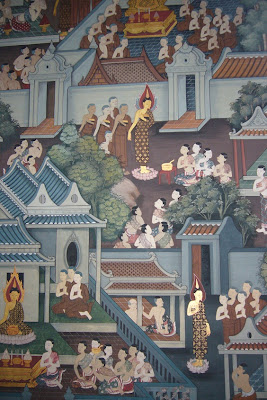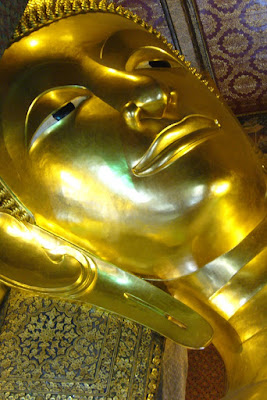The prestigious Unesco Memory of the World award has been granted to Wat Pho in Bangkok for its canons (religious texts) and ancient wisdom depicted and carved on 1,131 marble plates set in decorative frames.
Epigraphic Archives of Wat Pho: The Epigraphic Archives of Wat Pho (Temple of the Bodhi Tree) in Bangkok is a unique collection of 1,431 stone inscriptions in Thai language and scripts made in 1831-1841 on both religious and secular subjects, representing a wide range of Thai knowledge of Asian and local roots of the time in the context of over five centuries of global exchanges in trade, politics and culture. It was a conscious effort by King Rama III and Thai scholars to preserve and make them visible to the public with the ultimate aim in general education on cultural heritage, diversity and civilizations.
This is now the third time that items from Thailand have been entered in the Memory of the World Register. The first time in 2003 and then in 2009:
The King Ram Khamhaeng Inscription: The King Ram Khamhaeng Inscription (RK) of 1292 A.D. is considered a major documentary heritage of world significance because it gives valuable information on several major themes of world history and culture. It not only records the invention of Thai language scripts that are the foundation of the modern scripts used in Thailand by 60 million people, its rare detailed description of the 13th century Thai state of Sukhothai also reflects universal values shared by many states in the world today. Those values include good governance, the rule of law, economic freedom, and religious morality, in this case Buddhism, one of the world’s major religions. The inscription’s value as a historical document has already been evident when it was used to support Thailand’s successful proposal to inscribe the Historic Town of Sukhothai and Associated Historic Towns on the World Heritage List in 1991
Archival Documents of King Chulalongkorn’s Transformation of Siam (1868-1910): Present-day Thailand is in many aspects a legacy of the policies and practices carried out by King Chulalongkorn the Great of Siam (A. D. 1868-1910) within the context of western colonialism and modernization. The documents therefore record social policies such as the successful emancipation of slaves by peaceful and legal means, the abolition of gambling, the establishment of a public school system and the reform of the Buddhist Sangha, as well as the promotion of agricultural production, the market economy, financial and fiscal institutions. These measures contributed to the maintenance of Siam independence, a rare feat in the world at the time. (2009)
Sources: Nation and UNESCO
 |
| Sen Lines drawing on temple walls in Wat Po ( KK) |
 |
| Wall Mural (KK) |



No comments:
Post a Comment